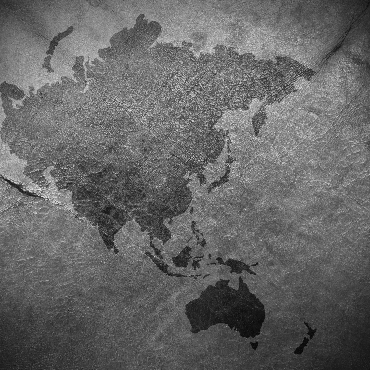CHINA SEIZES TERRITORY IN BHUTAN...
China's territorial offensive against Bhutan is expanding, according to satellite imagery published by Colorado-based Maxar Technologies. Six months ago, Chinese authorities disputed the eastern Sino-Bhutan border at the Sakteng Wildlife Sanctuary, which abuts the Indian state of Arunachal Pradesh. But Beijing is also seeking to change facts on the ground in western Bhutan. According to visuals from Maxar, China has constructed a village of two dozen homes by the Torsa River, more than a mile into Bhutanese territory, where a hundred Chinese citizens now reside.
The legal disagreement goes back to a treaty in 1890 between imperial Great Britain and the Qing Dynasty, which the People's Republic of China now rejects. The geopolitical dimension of the dispute centers on the village's proximity to the Siliguri Corridor, a narrow strip of Indian territory that borders China, Bhutan, Nepal, and Bangladesh. This chokepoint also connects India's western and eastern regions. Chinese and Indian forces engaged in a protracted stand-off near there in 2017, when the Indian military came at Bhutan's request to blunt Chinese construction of a road at the Doklam Plateau into Bhutan. (New York Times, November 27, 2020)
...AND CONDUCTS "MOUNTAIN DIPLOMACY" WITH NEPAL
By contrast, China has struck a more conciliatory note with Bhutan's western neighbor, Nepal. On December 8th, Beijing and Katmandu made good on their joint 2019 commitment to measure Mount Everest and update its height. Everest, the world's tallest mountain, is a point of national pride for Nepal, and abuts Tibet in China. For years, the Nepalese government had stiff-armed calls from Chinese officials to finalize the measurement together, but in 2019 Prime Minister K.P. Sharma Oli and General Secretary Xi Jinping announced the joint effort and called the mountain "an eternal symbol of the friendship between Nepal and China."
"Mountain diplomacy," an unusual instance of bilateral cooperation, is indicative of warming relations between the two neighbors. China is eyeing Nepal as a transit hub under the auspices of its One Belt, One Road initiative, with the ultimate goal of linking China more closely to the Asia subcontinent. Politically, meanwhile, Nepal's souring relations with India in the past five years have created a willingness in Katmandu to align more closely with Beijing. (New York Times, December 8, 2020; CNN, December 9, 2020)
INDONESIA FORWARD-DEPLOYS ITS COMBAT SQUAD TO THE SCS
As Indonesia and China continue to tussle over fishing rights at the southern tip of the South China Sea, military authorities in Jakarta are planning to reinforce a strategic outpost. Late last month, Indonesian naval chief of staff Yudo Margono announced the relocation of Jakarta's naval combat squad headquarters to the Natuna islands, an archipelago of 272 islands under sovereign Indonesian control. While Jakarta is not party to the South China Sea territorial claims dispute, Indonesia's Exclusive Economic Zone (EEZ) at Natuna overlaps China's so-called "9-dash line." Both countries have argued over fishing rights within this overlap, and China has gone so far as to transit coast guard ships through Indonesia's EEZ at the Natuna island chain. (Radio Free Asia, November 23, 2020; Voice of America, December 11, 2020)
PYONGYANG AND BEIJING TEST BIDEN ON SANCTIONS
According to leaked U.S. government documents, China's efforts to aid North Korea in evading international sanctions for its nuclear and ballistic missile programs have become more blatant in the past year. Unlike in years past, when Pyongyang shipped coal under foreign flags, North Korea used its own ships to export 4.1 million metric tons of coal between January and September 2020. Much of this coal has gone to China's Ningbo-Zhoushan port, renewing longstanding questions about Beijing's willingness to curb its neighbor's illicit activities. The Wall Street Journal estimates that this gambit could have netted between $300 and $410 million for Kim Jong-un's regime.
For now, State Department officials have shared the evidence of sanctions violation with the United Nations Security Council, but China is well-positioned to run interference for Kim there by virtue of its status as a permanent member. Looking ahead, the American response is unclear, particularly given the upcoming presidential transition next month. President-elect Joe Biden has criticized President Trump's negotiations with Kim, but Biden's designated advisors also appear open to phased negotiations with Pyongyang over its nuclear program. (Wall Street Journal, December 7, 2020)
Want these sent to your inbox?
Subscribe
Indo-Pacific Monitor No. 14
Related Categories:
Democracy and Governance; Human Rights and Humanitarian Issues; China; North Korea; Southeast Asia
